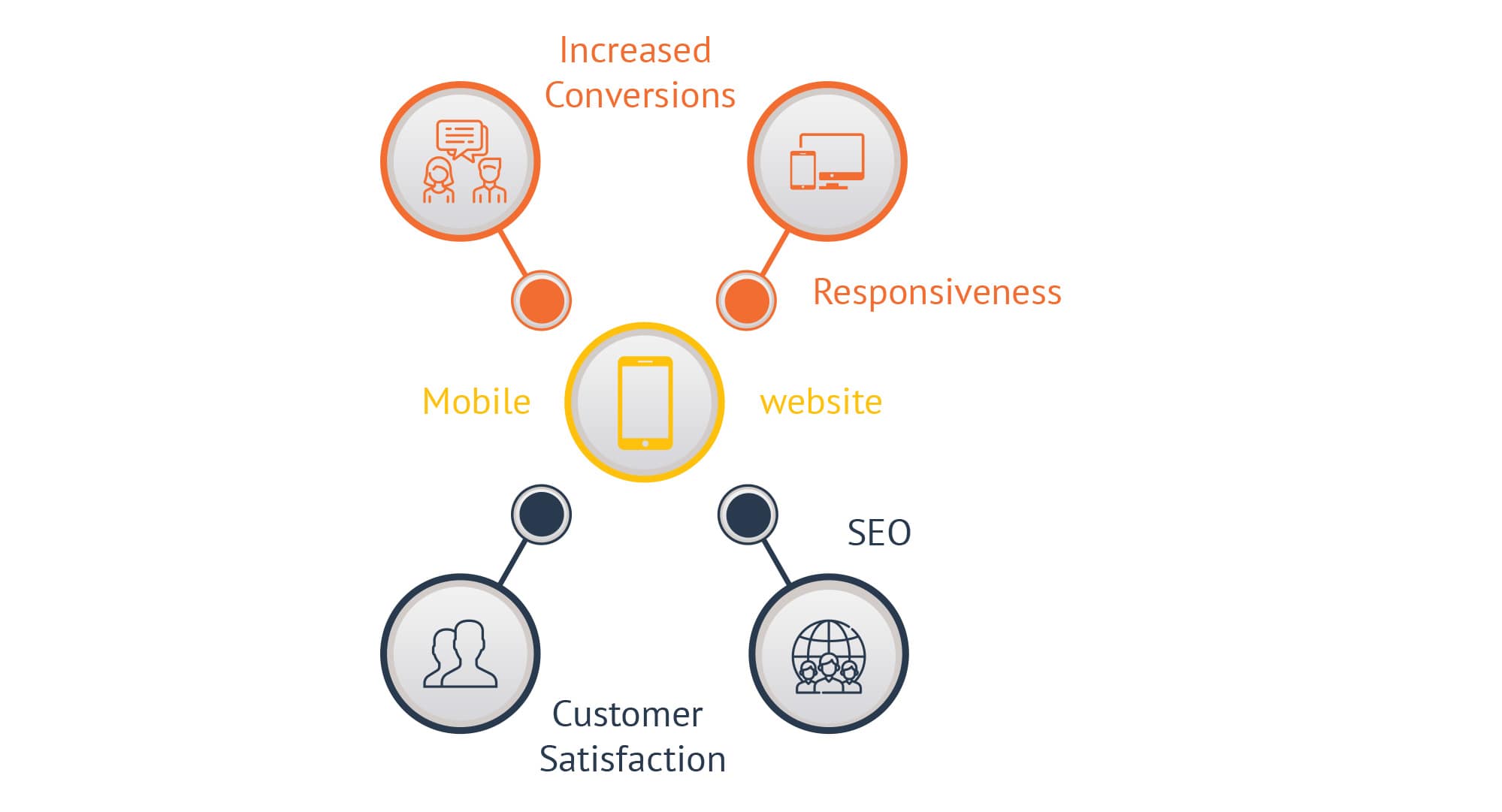If you haven’t yet considered the benefits of mobile website development for your business, this is the year you need to do so.
For businesses planning for growth in 2018, mobile website development is critical.
Here’s why:
Responsiveness
Your website should adjust depending on the device that’s being used to access it. This makes it easy for visitors to navigate your site and encourages them to stay on it for longer.
No longer can you assume that visitors to your website will be using a laptop or desktop computer. In fact, mobile web browsing overtook desktop browsing in October last year. That means it’s more likely that your visitors are clicking onto your website from a smartphone or tablet than a laptop.
Traditional websites weren’t formatted for these smaller displays. That means they don’t render well. If you’re wondering if your website is responsive, you can check it with Google’s Mobile-Friendly Test.

SEO
Heard of “Mobilegeddon”? In April 2015, Google began showing a preference towards sites that were mobile-optimised in search results. The search engine is now penalising websites if they’re not responsive.
Businesses that have prioritised mobile website development are now shown higher in the mobile search results compared to businesses that failed to make the switch.
This means that businesses who were previously in the top results for Google were overtaken by competitors who chose mobile website development.
While Google evaluates whether your site is optimised, it also looks at other factors to determine your positioning in search results. Two important aspects for ranking include Click Back and Bounce Rate:
Bounce Rate
Bounce rate is when a user reaches your website and then doesn’t continue to another webpage within your website. Instead, they’ll either enter a new URL from your website, or click a link to leave your site.
Click Back
Click back is when a visitor reaches your website and realises it’s not what they’re looking for (or not mobile optimised). They immediately click the ‘back” button to get back to their original search results.
Google tracks both of these factors. Both bounce rate and click back is higher for businesses that haven’t invested in mobile website development services.
Once Google notices that you have a low click back time and a high bounce rate, you’ll begin losing ranking to sites that are more helpful or mobile-friendly.
Customer Satisfaction
Most people now expect websites to be optimised for mobile. This is particularly true for millennials. 40% of this generation research future purchases on their smartphones. Millennials also recently over took baby boomers as the largest generation.
If you’re planning to market to millennials, your website needs to be intuitive, easy to navigate, and most importantly, mobile optimised.
Tablet users spend 20% more than desktop and laptop visitors, and many mobile users report that their purchases are impulse buys. By ensuring that your customers have a smooth path from first visit to purchase, you’ll increase sales and your mobile website development will quickly pay for itself.
If your mobile website isn’t user-friendly, or worse, you haven’t yet upgraded to a responsive website, your target customers are more likely to head to your competitors than to find a laptop and revisit your site.
Increased Conversions
One good way to see why mobile website development is so important is to load a desktop website in your smartphone yourself. You’ll quickly see why they’re so ineffective when it comes to converting visitors into paying customers.
Calls to action are often hidden, contact pages are buried amongst awkward menus, and links are difficult to find and click.
Unfortunately, attention spans are shorter than they’ve ever been before. If you’re hoping to keep potential customers engaged, you’ll need to make it quick and easy for them to purchase your product or service.
Now is a good time to take a look at your company’s website. Grab your smartphone and visit your website, before asking yourself these questions:
- Is the content easily readable?
- Is it easy to navigate?
- Does the site load in less than 3 seconds?
- Can you easily see the key message or selling points?
- Would you spend time on the website if it wasn’t your own?
If you’re finding it hard to gain traction and move up the search results, you may have been hit with a Google penalty or replaced by mobile-friendly competitors. And if your website isn’t currently optimised, you’ll need mobile website development services.
Unfortunately, you can’t simply click a button to make your site mobile-friendly. Luckily, we’re experts at mobile website development. Get in touch today and let’s talk.




